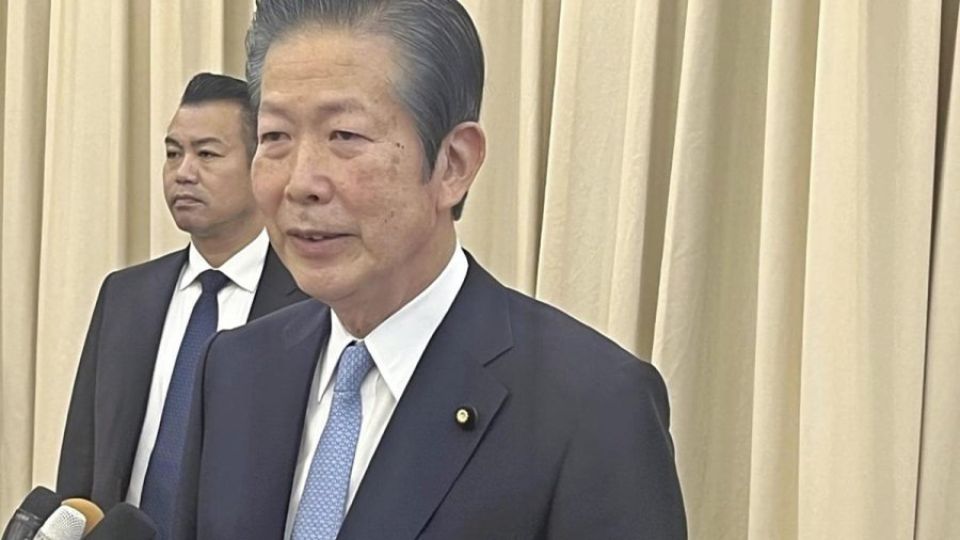November 24, 2023
TOKYO – During his visit to China, Komeito leader Natsuo Yamaguchi apparently hoped to demonstrate his political clout by leveraging his party’s long-standing connections with Beijing.
However, China’s increasingly hegemonic moves have cast Komeito’s stance in a new light, and the party now stands at a fork in the road.
Yamaguchi, who arrived in China on Wednesday, expressed his desire to improve bilateral ties during a meeting with Cai Qi, a member of the Secretariat of the Chinese Communist Party’s Central Committee, on the day. “I’d like to make every effort to further develop Japan-China relations,” Yamaguchi told reporters after the meeting.
Komeito was keen to visit China this year to coincide with the 45th anniversary of the entry into force of the Japan-China Treaty of Peace and Friendship, and had conveyed to Beijing its intention to visit China since the beginning of the year.
The trip had initially been slated for late-August. However, China canceled the arrangement at the last minute, likely to protest the ocean release of treated water from Tokyo Electric Power Company Holdings, Inc.’s Fukushima No. 1 nuclear power plant.
Nevertheless, Komeito continued to coordinate with the Chinese side to realize a visit because the party has historically built a deep relationship with that country.
In 1968, the late Daisaku Ikeda, founder of Komeito and honorary president of lay Buddhist organization Soka Gakkai, unveiled an initiative titled, “Proposal for normalization of diplomatic relations between Japan and China,” prior to the normalization of diplomatic ties between the two nations.
The proposal led to the normalization of diplomatic relations in 1972 and Ikeda — who died earlier this month — met with then Chinese Premier Zhou Enlai in China in 1974.
Since the 1990s, Komeito representatives have made regular visits to China. In 2010, Yamaguchi met with then vice president Xi Jinping. Yamaguchi frequently visited China until the COVID-19 pandemic began in 2019. Beijing also welcomed the series of meeting with Komeito.
Speaking at a press conference on Tuesday, Mao Ning, spokesperson of the Chinese Foreign Ministry, expressed hopes for improved bilateral ties, saying, “We hope for improvements and development of China-Japan relations through communication and exchange.”
China considers it worthwhile to maintain its relationship with Yamaguchi, who puts priority on relations with Beijing, sources said.
However, the pro-China line that Komeito has traditionally followed has reached a crossroad as China puts increased military pressure on Taiwan and others in the region.
If Komeito gets too close to China, the party could be criticized as being no more than a Chinese propaganda tool. Some observers have flagged the limitations of the party’s diplomatic approach.
However, Yamaguchi is aware of this situation. In August, he visited the Association of Southeast Asian Nations countries, including the Philippines, which has territorial disputes with China, in an effort to balance party diplomacy.
“We’ve no choice but to explore ways to contribute to regional stability by carefully continuing dialogue with China, while seeking cooperation among like-minded countries,” a senior Komeito official noted.

